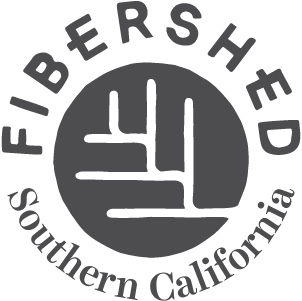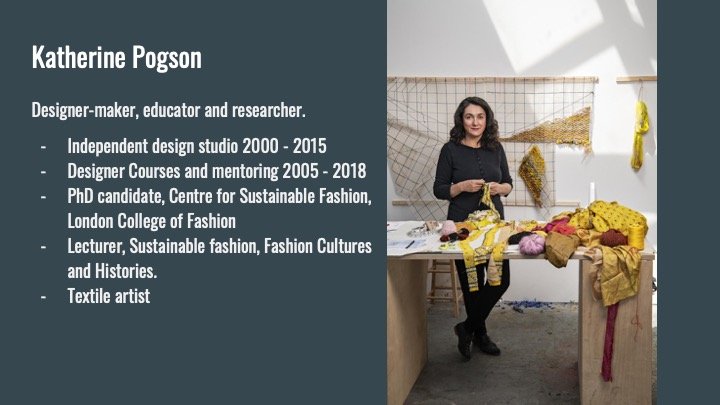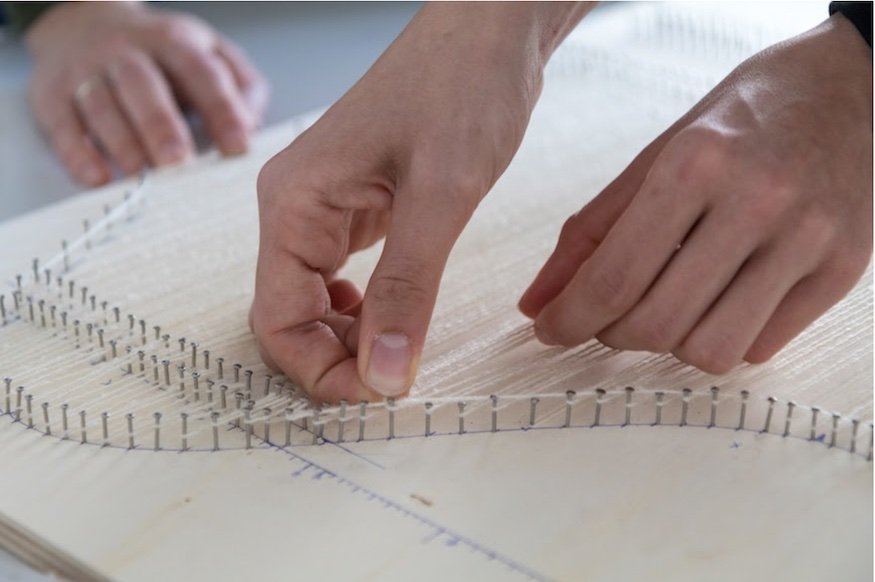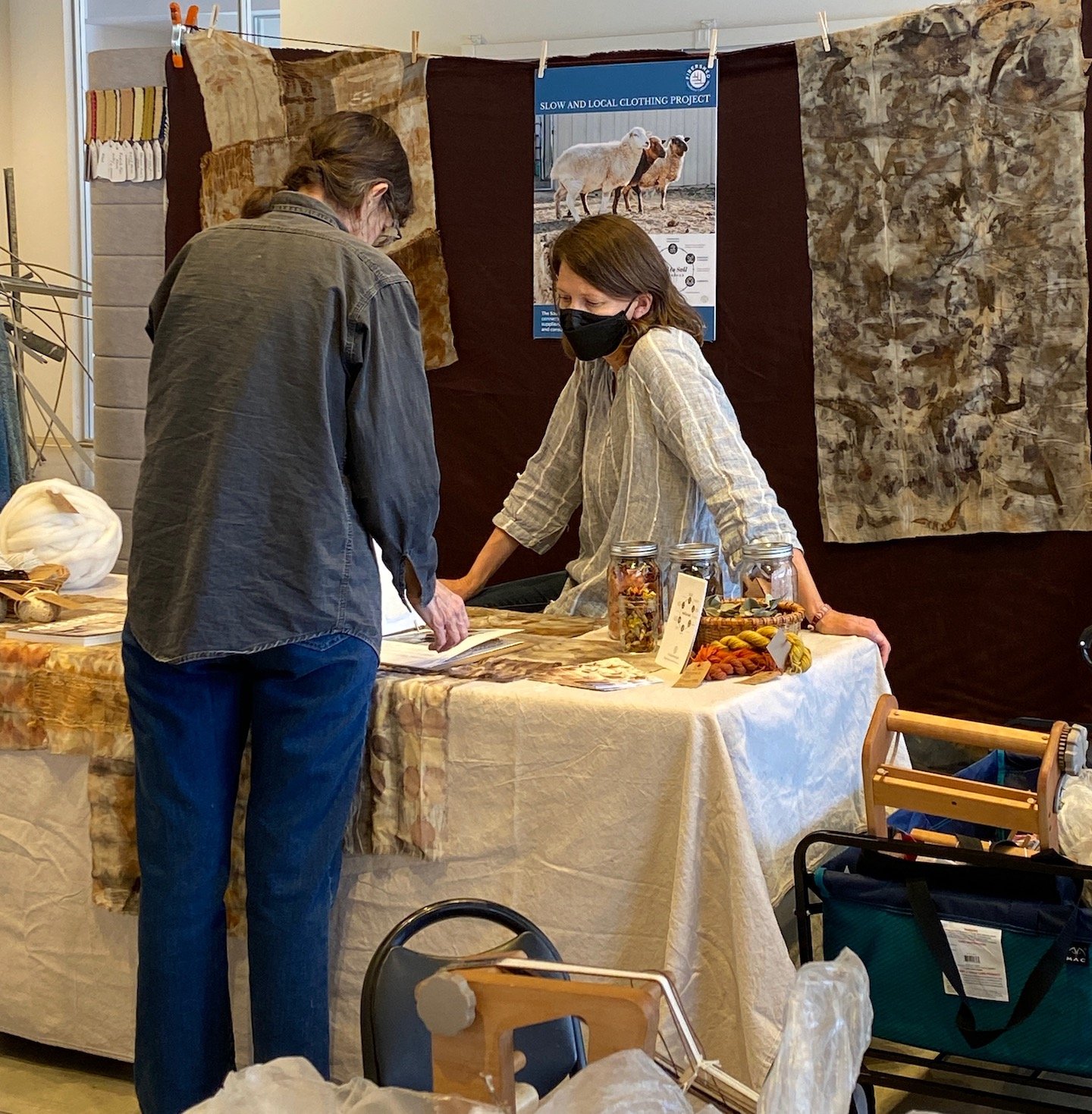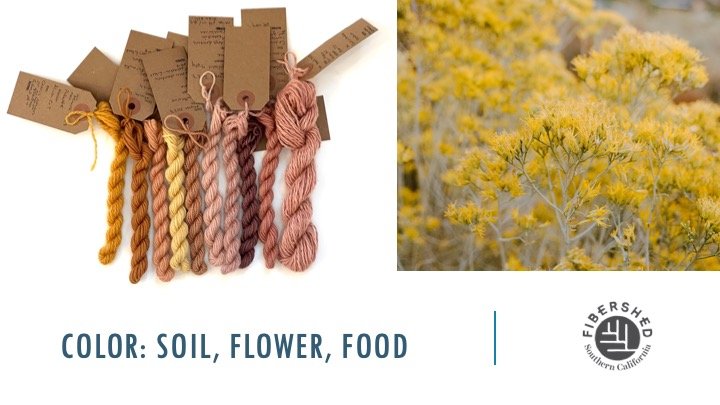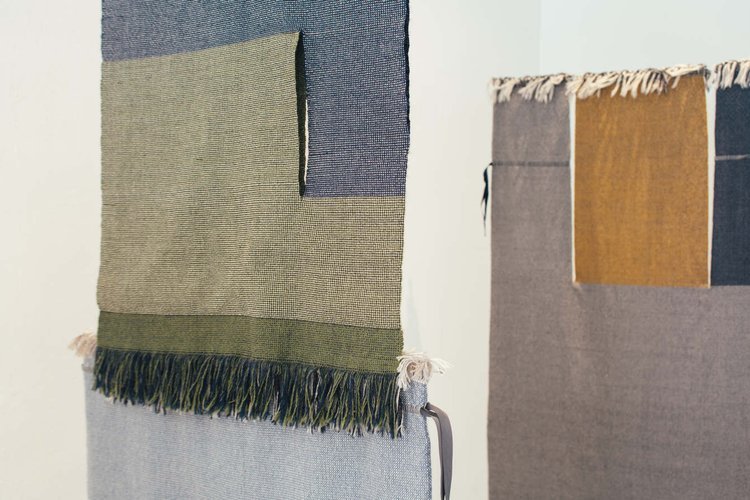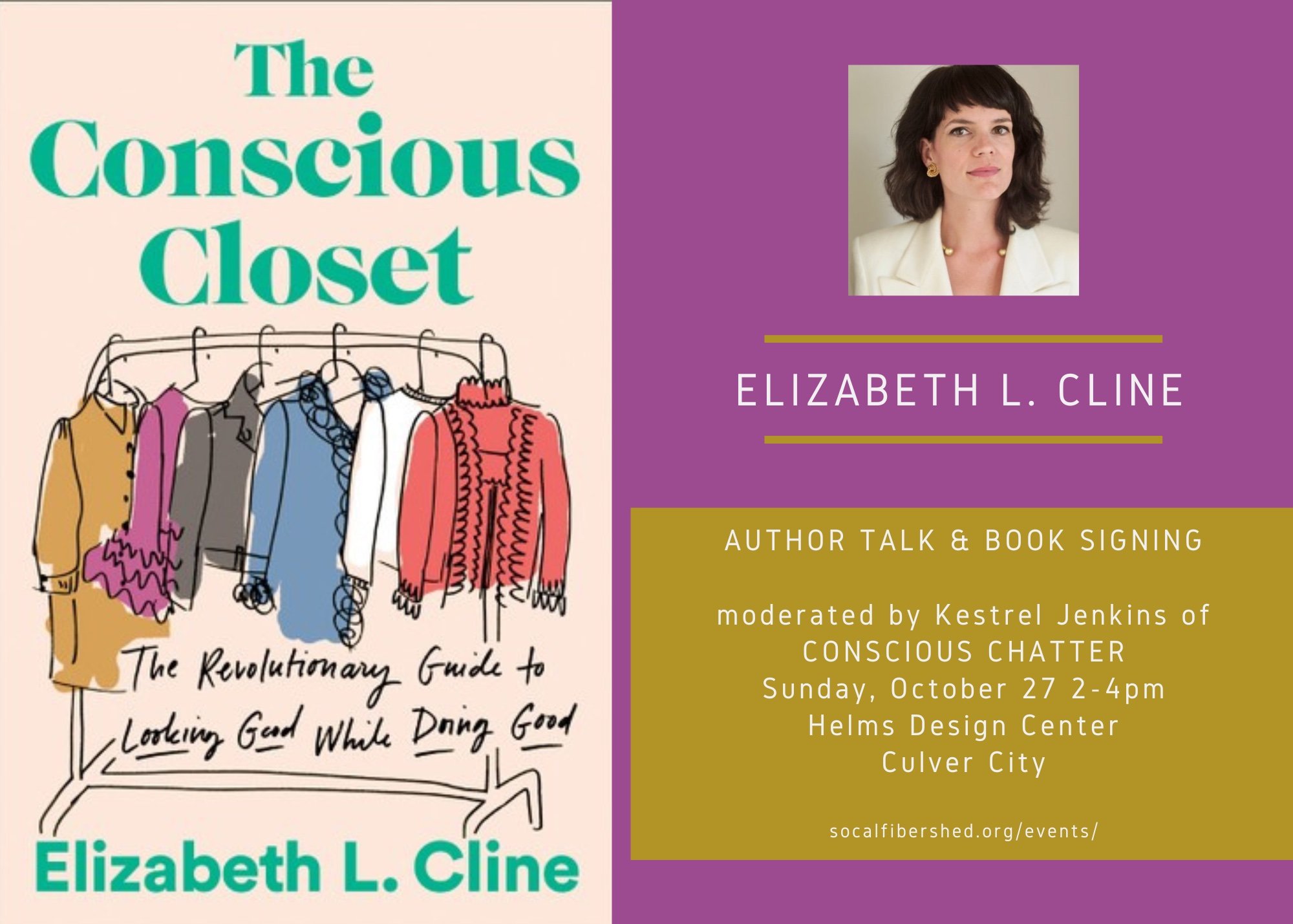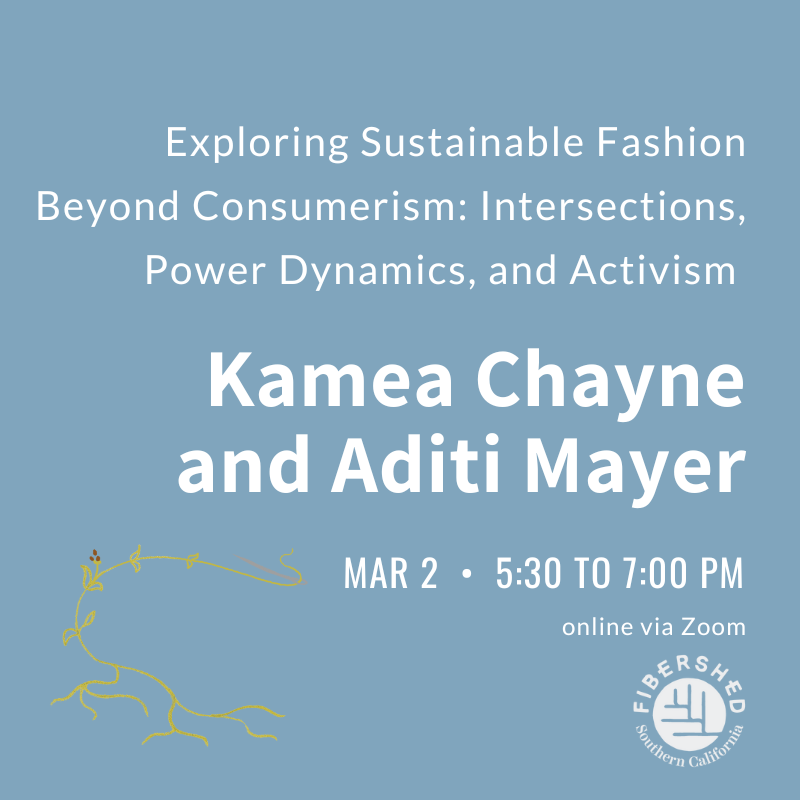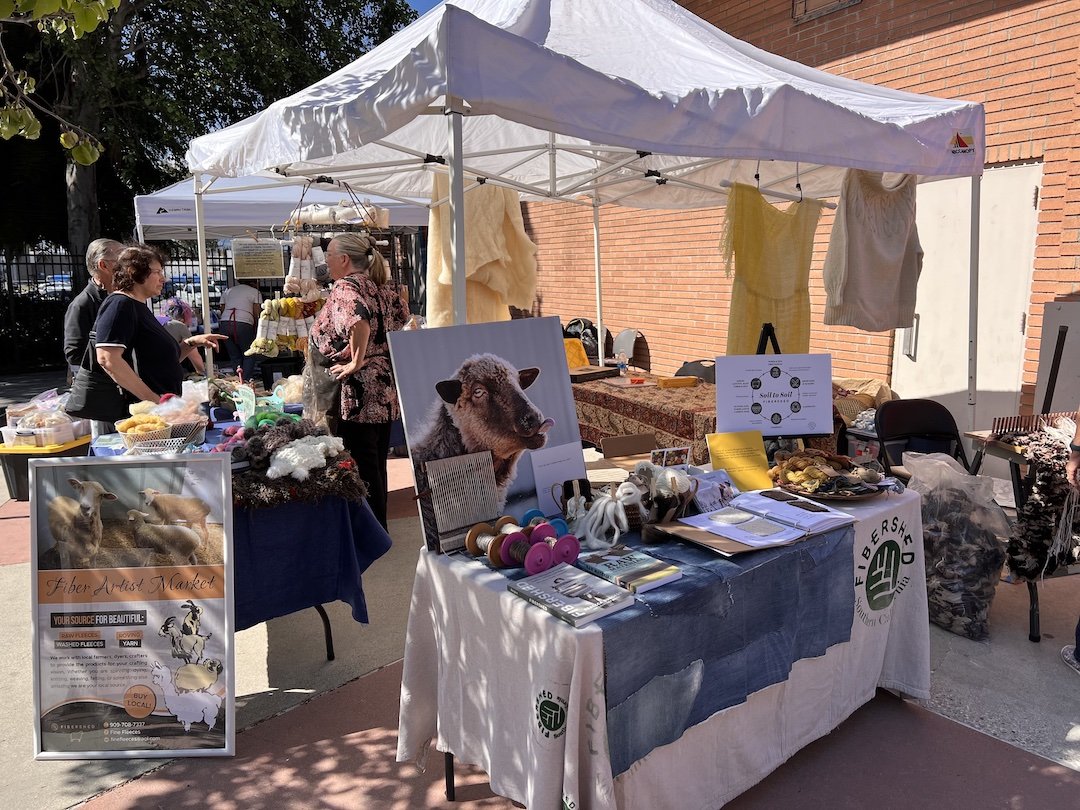The So Cal Fibershed chapter has also produced a talk with Elizabeth L. Cline, author of The Conscious Closet and expert on consumer culture, fast fashion, sustainability, and labor rights, moderated by conscious fashion advocate Kestrel Jenkins of Conscious Chatter. Jenkins and Cline toured us through an engaging dive into the fashion industry and teased out concrete tips for achieving a more ethical and sustainable wardrobe. They were joined by Daisy Gonzalez, representing Garment Worker United.
A handful of ethical brands also joined us for a mini expo: Swap Society, NRDC, Greenpeace LA, ReWeave LA, Danu Organic, Tact and Stone, Accoutrements LA, Trudy Barnes Studio, Home School Handwork, Chickasaw Homestead, and more.
Some additional talks and workshops are noted below.
Author & Artist Talks
In early 2020 we were delighted to welcome Fibershed founder, activist, and author Rebecca Burgess to Los Angeles for the launch of her book.
Rebecca Burgess, founder of Fibershed, joined us at the Helms Design Center in Culver City on Thursday, January 30th to share her latest book, Fibershed: Growing a Movement of Farmers, Fashion Activists, and Makers for a New Textile Economy. We gathered a standing room only crowd of activists, sustainable and conscious community members, fashion brands, farmers, shepherdesses, and artisans, for an inspiring and action-oriented talk on the challenges and opportunities we face creating local fibersheds. The talk was moderated by Kaméa Chayne, host of Green Dreamer Podcast and curator of ConsciousFashion.co.
The recap below was written by Stefania Corti.
Burgess explained the relationship between agriculture and fashion, and how this seemingly unlikely nexus is at the core of a healthier planet and a more sustainable attitude towards textiles. In fact, “Clothes can become a carbon solution, if you care about the landscape,” she maintains, essentially refuting the ingrained talking point of many environmental activists that fashion development and consumerism are evils to suppress. Rebecca asserts that unregulated textiles – especially through the phases of dyeing and finishing – are often quicksands of toxic chemicals, and a leading contributor to harmful effects, such as soil exhaustion and endocrine disruption. The treatment and processing of textiles dependent on fossil fuels for yarns or dyes (think: denim), are known to cause a variety of maladies ranging from cancers in humans and animals to depletion of fresh aquifers, leading to catastrophic effects on the livelihood of local human communities and entire ecosystems. However, textiles can also represent a solution. The important message is that, although “agroforestry contributes to more than half of carbon emissions,” we have an incredible opportunity to reintroduce carbon into the soil, divesting from fossil carbon, and turning instead to regenerative and organic sources with the help of biomimetic agriculture.
